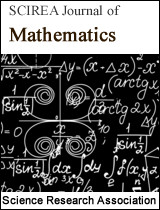End-to-End Deep Learning Strategies for Computer-Aided Lung Cancer Detection Systems
DOI: 196 Downloads 15222 Views
Author(s)
Abstract
Lung cancer is one of the most aggressive types of cancer, and the possibility to detect it at an early stage can save a lot of patient lives worldwide. Building an automated lung cancer detection system can help to speed up the process of cancer detection and save human lives. This article considers three different approaches used to design and build lung cancer detection systems. Mainly, these approaches use either the 2D convolutional neural networks (CNN) with a multi-instance learning task, 2D CNN with recurrent neural networks, or detection system pipelines with 3D CNNs, which can consist of single or multiple stages. The article presents the results of the experiments for each of the approaches. Finally, the obtained results and results from other recent papers are combined to compare all existing lung cancer detection system architectures and evaluate how different design decisions impact overall system accuracy.
Keywords
deep learning, convolutional neural network, lung cancer detection system
Cite this paper
Bohdan Chapaliuk, Yuriy Zaychenko,
End-to-End Deep Learning Strategies for Computer-Aided Lung Cancer Detection Systems
, SCIREA Journal of Mathematics.
Volume 4, Issue 5, October 2019 | PP. 140-155.
References
| [ 1 ] | B. Chapaliuk and Y. Zaychenko, "Deep learning approach in computer-aided detection system for lung cancer," IEEE 1st International Conference on System Analysis and Intelligent Computing, SAIC 2018 - Proceedings, pp. 165-169, 2018. https://www.doi.org/10.1109/SAIC.2018.8516856 |
| [ 2 ] | K. He, X. Zhang, S. Ren and J. Sun, "Deep Residual Learning for Image Recognition," 2016 IEEE Conference on Computer Vision and Pattern Recognition (CVPR), pp. 770-778, 2016. https://www.doi.org/10.1007/s00330-012-2627-7 |
| [ 3 ] | G. Huang, Z. Liu, v. d. L. Maaten and K. Q. Weinberger, "Densely Connected Convolutional Networks," 2017 IEEE Conference on Computer Vision and Pattern Recognition (CVPR), pp. 2261-2269, 2017. https://www.doi.org/10.1109/CVPR.2017.243 |
| [ 4 ] | F. Chollet, "Xception: Deep Learning with Depthwise Separable Convolutions," 2017 IEEE Conference on Computer Vision and Pattern Recognition (CVPR), pp. 1800-1807, 2017. https://www.doi.org/10.1109/CVPR.2017.195 |
| [ 5 ] | T. G. Dietterich, R. H. Lathrop and T. Lozano-Pérez, "Solving the multiple instance problem with axis-parallel rectangles," Artificial Intelligence, vol. 89, no. 1-2, p. 31–71, 2002. https://www.doi.org/10.1016/S0004-3702(96)00034-3 |
| [ 6 ] | W. Zhu, Q. Lou, Y. S. Vang and X. Xie, "Deep multi-instance networks with sparse label assignment for whole mammogram classification," Lecture Notes in Computer Science (including subseries Lecture Notes in Artificial Intelligence and Lecture Notes in Bioinformatics), vol. 89, no. 1-2, p. 31–71, 2017. https://www.doi.org/10.1007/978-3-319-66179-7_69 |
| [ 7 ] | K. Greff, R. K. Srivastava, J. Koutník, B. R. Steunebrink and J. Schmidhuber, "LSTM: A Search Space Odyssey," IEEE Transactions on Neural Networks and Learning Systems, vol. 28, no. 10, pp. 2222-2232, 2017. https://www.doi.org/10.1109/TNNLS.2016.2582924 |
| [ 8 ] | R. Dey and F. M. Salemt, "Gate-variants of Gated Recurrent Unit (GRU) neural networks," 2017 IEEE 60th International Midwest Symposium on Circuits and Systems (MWSCAS), pp. 1597-1600, 2017. https://www.doi.org/10.1109/MWSCAS.2017.8053243 |
| [ 9 ] | M. Grewal, M. M. Srivastava, K. Pulkit and V. Srikrishna, "RADNET: Radiologist Level Accuracy using Deep Learning for HEMORRHAGE detection in CT Scans," Arxiv, 2017. [Online]. Available: https://arxiv.org/abs/1710.04934. [Accessed 08 04 2018]. |
| [ 10 ] | D. Ardila, A. P. Kiraly, S. Bharadwaj, B. Choi, J. J. Reicher, L. Peng, D. Tse, M. Etemadi, W. Ye, G. Corrado, D. P. Naidich and S. Shetty, "End-to-end lung cancer screening with three-dimensional deep learning on low-dose chest computed tomography," Nature Medicine, 2019. https://www.nature.com/articles/s41591-019-0447-x |
| [ 11 ] | D. Tran, L. Bourdev, R. Fergus, L. Torresani and M. Paluri, "Learning Spatiotemporal Features with 3D Convolutional Networks," Proceedings of the 2015 IEEE International Conference on Computer Vision (ICCV), pp. 4489-4497, 2015. https://www.doi.org/10.1109/ICCV.2015.510 |
| [ 12 ] | T. D. Bui, J. Shin and T. Moon, "3D Densely Convolutional Networks for Volumetric Segmentation," Arxiv, 2017. [Online]. Available: https://arxiv.org/abs/1709.03199. [Accessed 08 04 2018]. |
| [ 13 ] | F. Liao, M. Liang, Z. Li, X. Hu and S. Song, "Evaluate the Malignancy of Pulmonary Nodules Using the 3D Deep Leaky Noisy-or Network," IEEE transactions on neural networks and learning systems, 2017. https://www.doi.org/10.1109/TNNLS.2019.2892409 |
| [ 14 ] | W. Zhu, C. Liu, W. Fan and X. Xie, "DeepLung: Deep 3D dual path nets for automated pulmonary nodule detection and classification," Proceedings - 2018 IEEE Winter Conference on Applications of Computer Vision, WACV 2018, Vols. 2018-Janua, p. 673–681, 2018. https://www.doi.org/10.1109/WACV.2018.00079 |
| [ 15 ] | F. Milletari, N. Navab and S.-A. Ahmadi, "V-Net: Fully Convolutional Neural Networks for Volumetric Medical Image Segmentation," 3D Vision (3DV), 2016 Fourth International Conference on, pp. 565-571, 2016. https://www.doi.org/10.1109/3DV.2016.79 |
| [ 16 ] | S. Ren, K. He, R. Girshick and J. Sun, "Faster R-CNN: Towards Real-Time Object Detection with Region Proposal Networks.," IEEE transactions on pattern analysis and machine intelligence, vol. 39, no. 6, p. 1137–1149, 2017. https://www.doi.org/0.1109/TPAMI.2016.2577031 |
| [ 17 ] | K. He, G. Gkioxari, P. Dollar and R. Girshick, "Mask R-CNN," Proceedings of the IEEE International Conference on Computer Vision, Vols. 2017-October, p. 2980–2988, 2017. https://www.doi.org/10.1109/ICCV.2017.322 |
| [ 18 ] | A. Neroladaki, D. Botsikas, S. Boudabbous, C. D. Becker and X. Montet, "Computed tomography of the chest with model-based iterative reconstruction using a radiation exposure similar to chest X-ray examination: Preliminary observations," European Radiology, vol. 23, no. 2, p. 360–366, 2013. https://www.doi.org/10.1007/s00330-012-2627-7 |
| [ 19 ] | "Validation, comparison, and combination of algorithms for automatic detection of pulmonary nodules in computed tomography images: The LUNA16 challenge," Medical Image Analysis, vol. 42, pp. 1-13, 2017. https://www.doi.org/10.1016/j.media.2017.06.015 |
| [ 20 ] | Kaggle, "Data Science Bowl 2017," [Online]. Available: https://www.kaggle.com/c/data-science-bowl-2017. [Accessed 02 04 2018]. |
| [ 21 ] | C. Fiorio and J. Gustedt, "Two linear time Union-Find strategies for image processing," Theoretical Computer Science, vol. 154, pp. 165-181, 1996. https://doi.org/10.1016/0304-3975(94)00262-2 |

